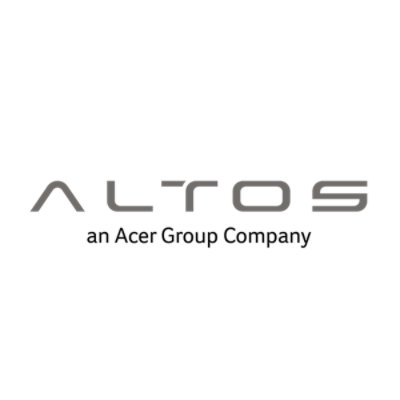Corporate Governance | Acer Group
Corporate Governance
Principles of Corporate Governance Best-Practice
Board of Directors and Committees
Election of Directors (Including Independent Directors)
Following FSC’s Order 1010005306 announced on February 20, 2012, Acer’s Article of Incorporation had been amended according to Act 177-1 of R.O.C. “Company Act”, to have seven (7) to eleven (11) directors (including independent directors), to be elected from the nominees listed in the roster of director with the candidate nomination system. The term of office for directors shall be three (3) years. The directors are eligible for re-election. The total capital stock held by all directors and independent directors shall not be less than the percentage provided by the competent authority. Relevant regulations (such as Article of Incorporation, Regulations Governing Procedure for Board of Directors Meetings, and Election Regulations of Director), meeting time, place, agenda and resolution report of the latest Shareholders’ Meeting has been revealed on Acer’s website.
Qualification for Independent Directors
Statement on the Independence of Acer’s Independent Directors
Operation of Board of Directors and Functional Committees
Board of Directors and Functional Committees
Disclosure to the affairs of corporate governance officer
Risk Management and Sustainable Development Committee Status
Implementation of Measures for Preventing Insider Trading
Disclosure to the affairs of ethical corporate management unit
Information disclosure of Cybersecurity Management
Sustainable Development Promotion Overview
Board of Directors Training Status
Succession Planning for Board Members
Implementation of Workplace Diversity
Linkage Between Senior Executives’ Compensation and ESG Performance Evaluation
Performance Evaluation of the Board of Directors
The Company has laid down “Measures for Performance Evaluation of the Board of Directors”, including the evaluation scope, methods and targets. Relevant Board performance measurement items cover five major aspects including degree of participation in the operation of the Company, enhancing the quality of decision making of the Board of Directors, composition and structure of the Board of Directors, election and continuing education of directors, internal control. The assessment results are divided into five levels: Outstanding, Good, Satisfactory, Dissatisfactory, and Immediate Improvement.
2020 Results
2021 Results
2022 Results
2023 Results
2024 Results
Intellectual Property Management Plan & its Implementation
Acer’s implementation and use of an IP management plan strengthens its overall corporate governance, which in turn helps ensure the sustainable operation of the company. Acer’s IP management plan established guidelines to protect its patents, trademarks, and trade secrets from infringement, as well as reduce the possibility of litigation. Additionally, Acer provides IP education and long-term IP training to its employees to ensure an overall understanding of Acer’s IP plan, thereby safeguarding Acer’s trade secrets and confidential information, as well as enhancing Acer’s business operations and competitive position.
2024 Intellectual Property Management Plan & its Implementation
Major Resolutions of Shareholders’ Meetings and Board Meetings for Recent Fiscal Years and as of the Printing Date of Annual Report
Major Internal Regulations
- Articles of Incorporation
- Standards of Integrity Management & Business Conduct (SBC)
- Regulations for the Conduct of Shareholders’ Meetings
- Acer Incorporated Internal Control Systems
- Regulations Governing Procedure for Board of Directors Meetings
- The Election Regulation of Directors
- Audit Committee Charter
- Remuneration Committee Charter
- Investment Committee Charter
- Risk Management and Sustainable Development Committee Charter
- Procedures to Standard Operating Procedures for the Handling of Requests made by Directors
- Risk Management Policy and Procedure
- Regulations Governing Acer’s Subsidiaries
- Procedures for Acquiring or Disposing of Assets
- Procedures Governing Lending of Capital to Other
- Procedures Governing Endorsement and Guarantee
- Foreign Exchange Risk Management and Structured Deposit
- Antitrust and Fair Competition Guidelines
- Regulations on Insider Trading
- Personal Data Management Principles
- Subject Regulations of Prevention, Complaint and Punishment of Sexual Harassment
- Procedures Governing the Application of Trading Halt and Resumption
- Anti-Bribery and Anti-Corruption Policy
- Acer Group Personal Data Protection Management Policy
- Regulations for Managing Transactions with Related Parties, Specific Companies, and Group Enterprises
- Sustainable Development Best Practice Principles
Internal Audit
The internal auditor should evaluate the company's internal control systems and report on whether these controls are designed and executed adequately, effectively and efficiently. The audit scopes include all the operations of the company and its subsidiaries.
The main work of the internal audits is performed according to an annual plan which is formulated based on the risk assessment and approved by the Board of Directors. Project audits or special reviews are conducted as needed. By reviewing the execution of the regular audits and the project audits, the management team can understand the functioning of the internal control system and the existing or potential weaknesses in the system.
Internal Auditing Office reviews the results of internal control self-assessment performed by each department and subsidiary to ensure the quality of the executions. In addition, Internal Auditing Office consolidates the assessment results for the Board of Directors to evaluate the overall efficiency on the existing internal control systems before issuing the Internal Control System Statement.
Tax Policy
To ensure tax policies work effectively, Acer’s global and local finance teams are responsible for tax-related matters, which are continuously reviewed and further reported to Corporate CFO, CEO, Audit Committee, and the Board of Directors. The headquarters and its subsidiaries should comply with the following tax policies:
- Comply with the spirit and the letter of tax laws and regulations in the countries or jurisdictions in which the company operates.
- Do not use any tax structure without commercial substance, and do not engage in any arrangement that transfers profits to low tax jurisdictions.
- Inter-company transactions are based on the arm’s length principle and in compliance with the transfer pricing guidance published by the OECD and local transfer pricing regulations.
- Do not undertake transactions and do not use tax haven for tax avoidance.
- Comply with relevant laws and regulations to disclose tax-related information to ensure transparency.
- Communicate with local tax authorities in an honest, professional, and open manner to maintain friendly relationships.
- Strengthen professional competence, enhance professionalism of tax specialists, and cultivate professional tax talents through continuous educational training and participating in tax seminars.








